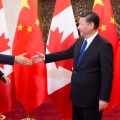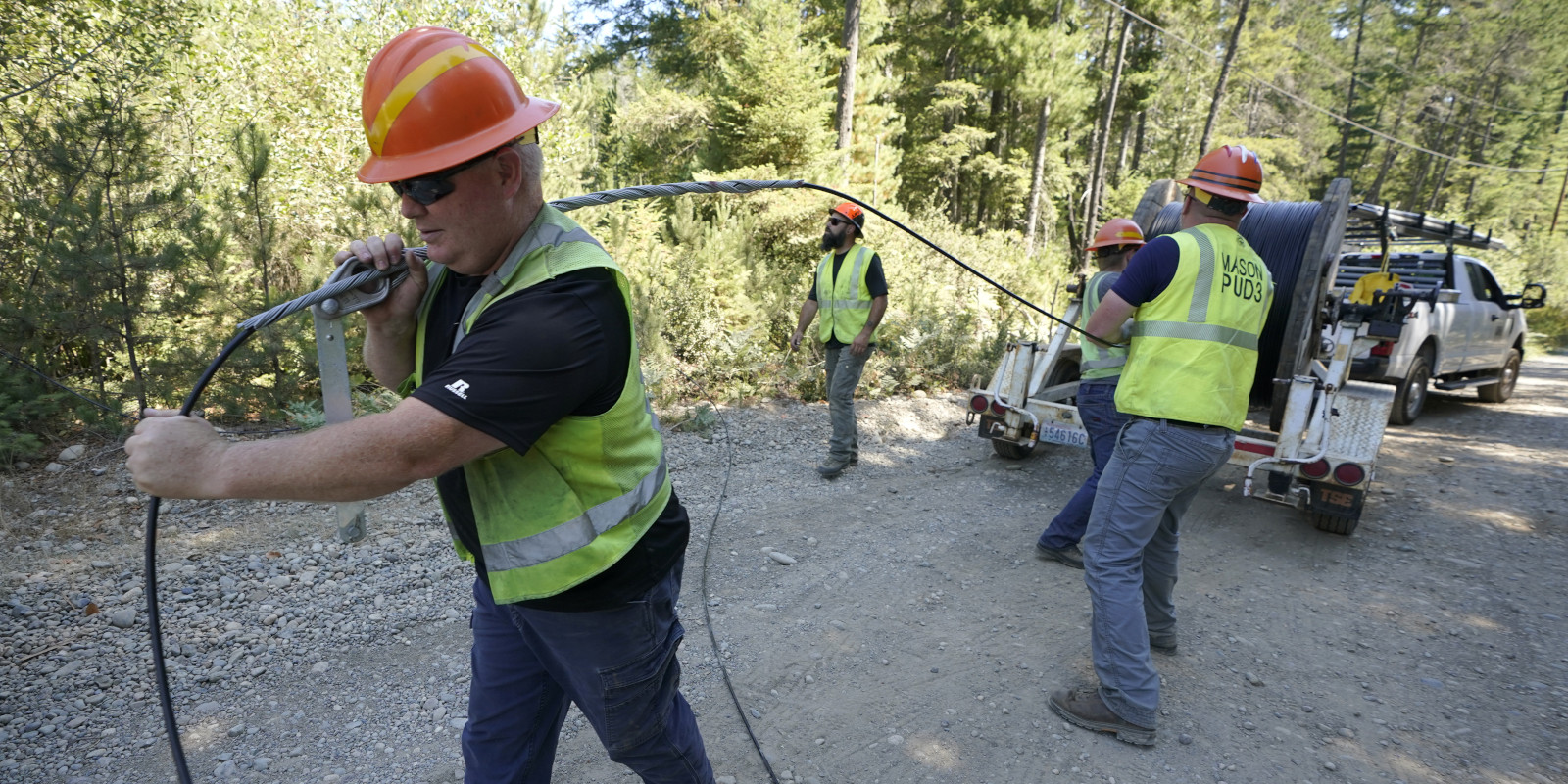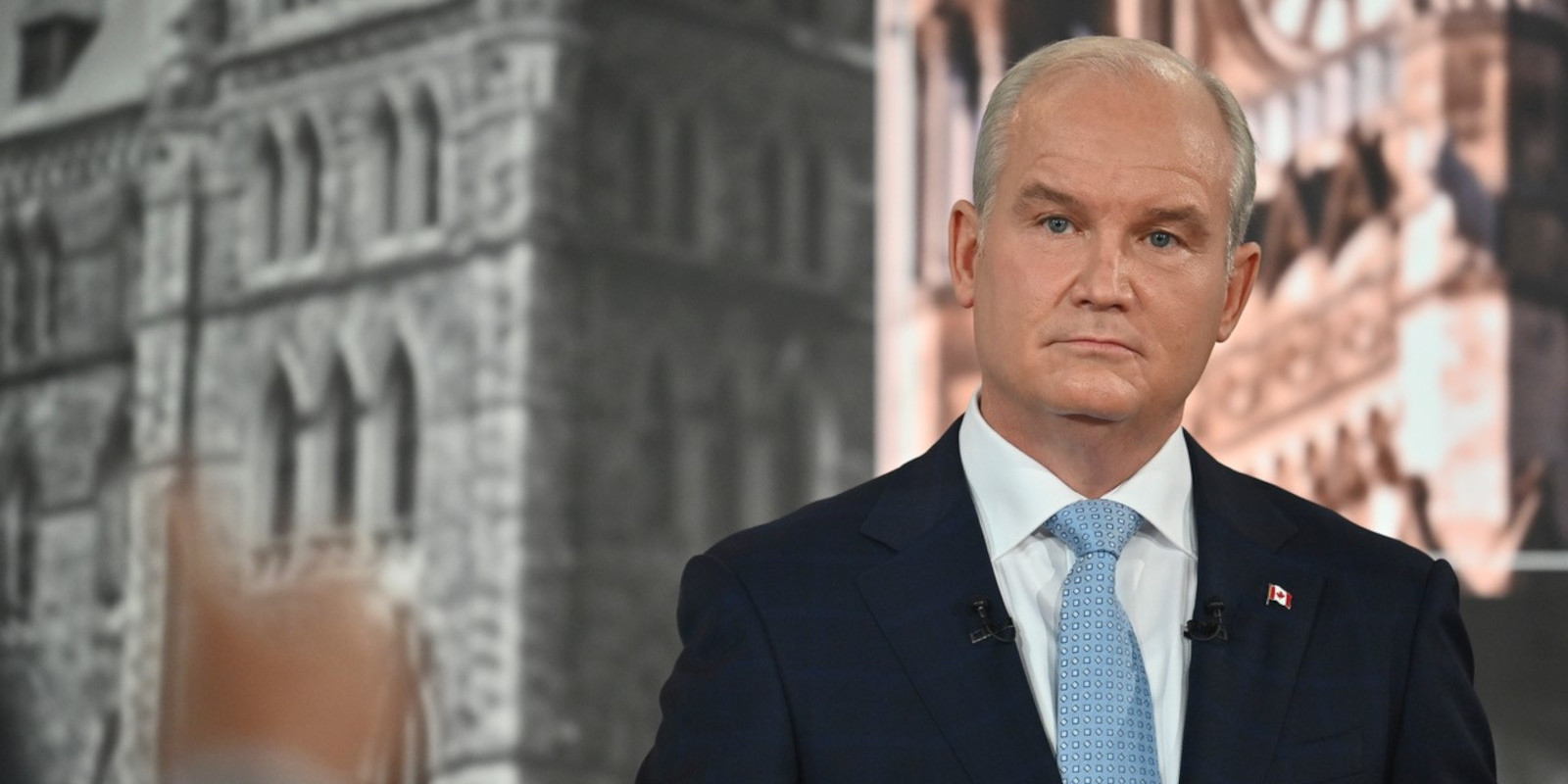Welcome to The Hub’s Federal Election 2021 Policy Pulse, where we’ll be tracking all the policy announcements from the major parties, with instant analysis from our crew of experts.
With the election scheduled for Sept. 20, we’ll be monitoring 36 days worth of policy ideas, so watch out each morning for the day’s live blog where we’ll be tracking every announcement as it happens.
3:30 p.m. — Where the parties stand on rural broadband
By L. Graeme Smith, The Hub’s content editor
Canada is an extraordinarily urbanized country, with more than 80 percent of Canadians making their homes in urban areas. It is no surprise then that this campaign has primarily focused on issues affecting urban Canadians the most, from the housing market in our major metropolitan areas, to green infrastructure and transit projects that primarily benefit those living in cities.
So far, the federal leaders have spent the majority of their time campaigning and making announcements in urban areas.
But while rural Canadians may seem like an insignificant minority for federal politicians to focus on when the biggest and most important ridings to win are those in the cities, it is a mistake to ignore this constituency purely for the sake of electoral considerations. For a country that is struggling to find sustained economic growth, leaving one-fifth of its population behind is more than just unfair, it is counterproductive.
One particular concern in this regard for both rural Canadians and remote Indigenous communities is the issue of digital connectivity and lack of access to broadband services — concerns felt all the more acutely in our pandemic era where our work, social connections, and even medical services are increasingly being partially mediated or conducted entirely online.
A recent report from the Public Policy Forum, Canada’s Digital Connectivity Infrastructure in the Age of COVID-19, highlights that 99 percent of urban households have access to reliable and affordable internet access, while only 46 percent of rural households do, and a mere thirty-five percent of First Nations reserves do. The median download speed in cities is 51.54 mbps versus 5.62 mbps in rural areas.
This is a major problem when reliable internet access is a prerequisite for both competing in an increasingly digital and remote work economy and for spurring the innovation necessary to kickstart and sustain economic growth.
As to what is on offer from the major parties, Conservative leader Erin O’Toole has promised to connect every part of the country to high speed internet in the next four years in order to “eliminate the digital divide and ensure every Canadian can participate in the digital economy.”
Both the Liberals and the Conservatives are promising that their government will apply “use it or lose it” provisions to ensure that spectrum is actually developed in rural areas between now and 2025.
The Liberal platform pledges that if their broadband access milestones are not met (milestones which remain undefined in the document), they will mandate the resale of spectrum rights and reallocate that capacity from the national carriers to smaller, regional providers.
The NDP have committed to declaring high-speed internet an essential service, and have also pledged to ensure access to affordable, reliable high-speed broadband within four years.
Any sustained attention on their needs is welcome news for rural Canadians. But if Canada is to eliminate its digital divide and maximize its potential in an online world, these platform promises must be more than rhetorical.
2:00 p.m. — An unexpected foreign policy segment in last night’s debate saw the leaders divided on Afghanistan and China
By Amal Attar-Guzman, The Hub’s associate editor
Although foreign policy was not one of the main topics scheduled to be discussed during last night’s English-language debate, viewers were treated to a quick segment about global events during the “leadership and accountability” section.
China and Afghanistan, two issues that have been driving the news agenda recently, were at the forefront.
Afghanistan
Afghanistan dominated the discussion thanks to the efforts of moderator Shachi Kurl. The issue was pressing after 43 Canadians left Kabul airport yesterday on a Qatar flight and arrived in Doha, as confirmed by Foreign Affairs Minister Marc Garneau.
Conservative leader Erin O’Toole criticized Prime Minister Justin Trudeau’s response to the crisis, claiming “Canada should have never left people behind who are at risk because they helped us.” NDP Leader Jagmeet Singh also had his own criticisms on the government’s response, highlighting the dire circumstances women and girls are facing under Taliban rule.
Trudeau said criticism from party leaders discredited the work done by the CAF and diplomats who helped evacuate 3,700 people out of Kabul. More flights are set to leave Kabul in the upcoming days.
China
Moderator Shachi Kurl opened the discussion about China by noting that Michael Kovrig and Michael Spavor have been imprisoned in China for more than 1,000 days. Kurl also mentioned the tense China-Canada relations in terms of telecommunications security and foreign investment.
Singh opened debate saying that Canada has to work effectively with allies and put pressure on China to get the two Michaels home. Trudeau defended the government’s position on China, saying that Canada is working with the international community to hold China in account.
O’Toole immediately criticized Trudeau on the two Michaels, Huawei, Hong Kong, and the government’s position regarding the Uyghur genocide. After some debate, O’Toole said that “Canada is needed back on the world stage,” that despite being smaller than China, “Canada is a giant when it comes to [its] commitments to human rights, to dignity and the rule of law.”
Two “Aha” foreign policy moments
Two major “aha” moments in last night’s debate came from unlikely sources in Bloc Quebecois leader Yves-François Blanchet and Green Party leader Annamie Paul.
Blanchet highlighted the downside of Canada’s position on the global stage and the lack of proactive engagement in recent years. In his view, the main problem Canada is facing is the lack of strong partnerships with its allies and other countries in order to have a strong front when facing crises like Afghanistan. He reiterated the importance of global partnerships, saying that “by itself…Canada is not a world power.”
Paul highlighted the importance of Canada’s word on the global stage. In light of the redrawing of geopolitical lines, she claimed that what “Canada will have going forward in terms of currency is its word.”
12:00 p.m. — The leaders debate was a two-hour demonstration of our diminished expectations
By Sean Speer, The Hub’s editor-at-large
If you had arrived from outer space to watch last night’s leaders debate, you would be forgiven for assuming that we’ve solved for scarcity. The moderators and leaders spent most of the night debating how to allocate the spoils of a growing economy with virtually no discussion about how to ensure that it actually stays growing.
The underlying assumption seemed to be some combination of “growth doesn’t matter” or “growth is self-generating” or “modest rates of growth are sufficient.” Either way, there was a kind of fatalism to the whole thing that amounted to the inverse of the Liberal Party’s 2015 tag line, “better is always possible.” The essential message from last night’s debate was much more circumscribed: “this is the best we can expect.”
These diminished expectations are reflected in the faux controversy in recent days from economists, journalists and pundits about the Conservative Party platform’s aspiration to raise the country’s growth rate to 3 percent per year.
The idea that an aspiring government would prioritize higher rates of economic growth has been characterized as unrealistic and outside of our control. It’s been mostly dismissed as a communications gimmick.
This is the kind of fatalistic thinking that leads to a two-hour debate about everything but the foundational question of how we continue to grow our economy, boost productivity, and ultimately raise living standards.
It represents one of the peculiarities of modern Canadian politics: the media and pundit classes seem to have absolute confidence in our policymakers’ ability to manage global climate patterns to a precise degree over long time cycles but no confidence in their ability to influence economic growth within our borders even on the margins.
So instead of competing visions for how to boost growth or even how to balance growth ambitions with other priorities, last night’s debate gave us various exchanges about important yet mostly second-order questions with economic growth being conspicuously absent.
What does a debate without growth sound like it?
The words “invest,” “investing,” and “investment” were frequently used throughout the night. In most cases, though, the leaders didn’t mean “invest” in any conventional sense (including trade-offs, cost/benefit analysis and eventual returns on investment) but instead as a positive spin to competing promises of deficit-financed spending on current consumption.
Things probably hit a low point when, in the name of “affordability,” the party leaders fought over which one would provide larger cheques to seniors who now represent the wealthiest generation in Canadian history.
Canada faces a series of big challenges in the coming years. Aging demographics, a rising U.S.-China Cold War, and the ongoing exclusion of marginalized groups (including Indigenous people and disabled Canadians) are three major ones that come to mind. In each case, a faster-growing economy and higher rates of productivity are crucial ingredients to overcoming them. But you wouldn’t have known it last night.
To borrow from George Will, higher rates of growth don’t just make us better off; they make us better by shifting our politics from a zero-sum contest of power and will to a positive-sum world of aspiration and possibilities.
Better is indeed always possible. If only the media and our politicians believed that anymore.
10:00 a.m. — Last night’s debate will be overshadowed by the next-day spin
By Antonia Maioni, a political science professor at McGill University
Given that last night, more Canadians were probably riveted by the U.S. Open semi-final win by Leylah Fernandez, or the NFL season opener, than listening in the English-language leaders’ debate, the spin will likely be as important as the content for Canadian voters.
In that regard, it was Erin O’Toole’s night, with positive reviews from both English and French commentators. And, boy, did he look happy at the after-party press conference. The Conservative leader survived the French language trials by staying calm and on message, but it was in the English debate that he gave his best performance as a potential prime minister.
And, it allowed him the best zingers of the night, from foreign affairs to finances. Mr. O’Toole tried to make the entire debate a reflection on leadership, more specifically Justin Trudeau’s lack thereof. And once again, he hammered home on what he characterized as the irresponsible decision to call an election as Canada continues to fight the Covid-19 pandemic.
Unfortunately, the voting public — in both official languages — still don’t have a clear answer from the prime minister on that question. The Liberal leader was compelling in many of the topics at hand in this final debate, but his answers seemed uninspiring. Although he was physically in the centre of the stage last night, he failed to star in the show, lacking even the passion he displayed in the French-language debate when goaded by the Bloc Québécois leader on the question of the Quebec nation.
Pity poor Yves-François Blanchet, though. He may have been able to rationalize Quebec Premier François Legault’s less-than-subtle endorsement of a Conservative minority government earlier in the day, but seemed caught off by the opening question in last night’s debate, as the moderator took him to task on the “discriminatory” laws with regard to anglos and allophones in Quebec. This is the kind of attack that will surely be regarded as “Quebec-bashing” by some francophone Quebecers, and the Bloc leader’s quick comeback may score some points there. Still, for the rest of the debate his Quebec-only message seemed often out of tune and out of touch.
Another absentee performer was Jagmeet Singh. The English-language format may have been more comfortable for him but it some sense it was too comfortable, encouraging the NDP leader to stray from crucial policy details to heartwarming anecdotes that may sound great on the campaign trail but don’t have the same effect in a formal setting.
He was upstaged by Green Party leader Annamie Paul on more than one occasion, including discussions of reconciliation and climate change, two issues at the heart of both of these left-leaning parties’ platforms.
So now, with the leaders’ debates out of the way, all of that careful attention to the fine grain of policy details and to costing and comparing policy commitments will likely be overshadowed as the parties scramble to secure votes by any means necessary.
Within minutes of the end of the debate last night, the attack ads had already started. Get ready for more of the same — much more — as this electoral campaign, necessary or not, winds down to September 20th.
8:00 a.m. — If that’s what passes for a debate, voters are on their own for this election
By Rudyard Griffiths, The Hub’s executive director
Having organized and moderated a federal leaders debate in 2015 on Canada’s foreign policy I know just how hard it is to create a compelling conversation between a group of hyper-partisan individuals who are engaged in the political fight of their lives. Everything is at stake during 90 minutes plus of parry and thrust that makes up a leaders debate. You can cut the tension with a knife as the debaters try to catch your attention to jump in with an attack line or counter point. In short, it is no easy feat to pull off a leaders debate that gives voters a useful assessment of the ideas, demeanor and character-under-pressure of the people who would profess to lead the country on our behalf.
Alas, last night’s debate came up short of this basic litmus test. For the second federal election running, our state-sponsored “debates commission” managed to make a series of predictable mistakes by trying once again to be all things to all people. The result of having multiple formats, questioners, technologies — a massive overproduction fueled no doubt by the commission’s multimillion-dollar public subsidy — ensured the debate was neither edifying nor entertaining. Just like in the 2019 election, the “official” English language debate degenerated into to a retread of question period in the House of Commons and all the misery for the viewing audience that this entails. And this is odd choice in terms of a debate style and tone for both for the commission and the leaders. Neither comes away looking particularly competent, informed or really that interested in public and their concerns. Instead, the country is treated to a very Ottawa-centric performance consisting of sound bite answers (timed almost to a tee to the House’s 35-second speaking rule), rehearsed attack lines and a schizophrenic smorgasbord of policy issues that were blown through at the speed of a Preakness Stakes winner.
It doesn’t have to be this way. In very typical Canadian fashion we took one of the last unregulated parts of the election, leaders debates, gave them to a government commission appointed by the sitting prime minister, then gave the commission millions of public dollars to hire the broadcasters (now also funded directly and indirectly by government) to produce, on voters behalf, last night’s meagre gruel.
No do overs. No second English language debate. No debates focused on a specific policy area like the economy or foreign policy. No debates with, say, the three parties who are actually likely to form government. Nope, folks, that is it. You are own your own with Twitter, Facebook and occasional news report as your guides to figure out these leaders, what they think about the big issues, and where they want to take the country. Shameless plug warning: Or you can let The Hub do it all for you with our daily election Policy Pulse blog.
Last night’s debate confirms we need to chalk up the government run and sponsored debates commission (which is in itself a rather alarming intrusion of the state into the writ period) as an initially well-intentioned but ultimately failed experiment. We instead need to look more closely at why the 2015 election had more debates, on more topics, with multiple formats, than any election before. In short, we need to break the current monopoly official Ottawa — its media, its bureaucracy, its political class — have on the leaders debates. They are too important to this $500 million exercise that is a federal election. We need to democratize, energize and truly put the leaders debates into the service of Canadian voters.
7:00 a.m. — Where the leaders are today
Liberal leader Justin Trudeau will be in Hamilton to make an announcement at 10:30 a.m.
Conservative leader Erin O’Toole will be in Mississauga to make an announcement at 12:30 p.m.
NDP leader Jagmeet Singh will be in Ottawa to make an announcement at 8 a.m.
Recommended for You

David Mulroney: Foreign Minister Joly, Xi Jinping’s China doesn’t do ‘dialogue’

Marc Edge: If the NSICOP report on foreign interference won’t name Canadian media outlets, I will

‘One of the most serious national security breaches in Canadian history’: Margaret McCuaig-Johnston on China’s Winnipeg lab infiltration

Richard Shimooka: Our enemies and allies alike have realized that Canada is an easy mark








